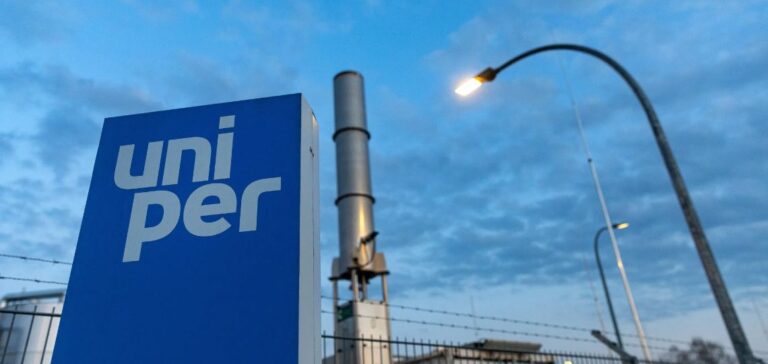Uniper posted an adjusted EBITDA of €2.61 billion for the 2024 financial year, a sharp decline from the €7.16 billion recorded in 2023. This decrease was expected, as the previous year’s results had been boosted by successful hedging transactions, particularly in coal- and gas-fired power generation and the midstream gas business. Despite this decline, the company remains highly profitable.
Decline in power generation and trading segments
In the Green Generation segment, adjusted EBITDA rose slightly to €498 million, compared to €476 million in 2023. This increase was driven by the nuclear business in Sweden, which benefited from favourable hedging transactions and improved plant availability. However, hydropower earnings declined due to lower realised prices and provisions for dam remediation in Germany following floods.
The Flexible Generation segment, which includes fossil-fuel assets, saw a significant drop, with adjusted EBITDA falling to €998 million from €2.41 billion the previous year. The decline in market prices reduced profit margins for fossil-fuel power generation.
Sharp contraction in gas trading
The Greener Commodities segment, covering gas and electricity trading, saw adjusted EBITDA plummet to €1.49 billion, down from €4.24 billion in 2023. Last year, Uniper had benefited from an exceptional market environment with lower replacement costs for undelivered Russian gas. Changing market conditions in 2024 ended these advantages, leading to a sharp decline in results.
Meanwhile, Uniper reduced its CO₂ emissions by 27%, reaching 14.2 million tonnes in 2024, mainly due to the shutdown of the Staudinger 5 and Scholven B coal plants in Germany, as well as the closure of Heyden 4 and Ratcliffe in the UK.
Lower expectations for 2025
The company anticipates a further decline in adjusted EBITDA in 2025, expecting it to range between €900 million and €1.3 billion. Adjusted net income is projected between €250 million and €550 million, due to lower commodity prices and the absence of hedging gains from previous years.
Uniper also expects a further reduction in emissions in 2025, as coal and gas-fired power generation are likely to decline compared to 2024. The sale of the Gönyű gas-fired power plant in Hungary in January 2025 is expected to contribute to this trend.
€2.6 billion payment to the German state
Uniper has set aside a provision for a €2.6 billion payment to the German state, linked to the public aid received in 2022. This amount is scheduled to be paid in the first quarter of 2025. In September 2024, Uniper had already transferred €530 million to the German government after recovering compensation for undelivered gas from Gazprom Export.
Risk reduction and asset sales
The company has significantly reduced its business risks by terminating its long-term gas supply contracts with Gazprom Export and settling several legal disputes. It has also strengthened its financial position by refinancing its syndicated credit line, which was increased from €1.7 billion to €3 billion.
In compliance with European Commission requirements, Uniper is divesting certain non-strategic assets. Following the sale of its marine fuel trading business in the United Arab Emirates and its 20% stake in the BBL gas pipeline in 2023, the company finalised the sale of the Gönyű gas-fired power plant and its North American electricity portfolio in 2025. Other disposals, including the Datteln 4 coal plant and district heating operations in Germany, are underway.






















